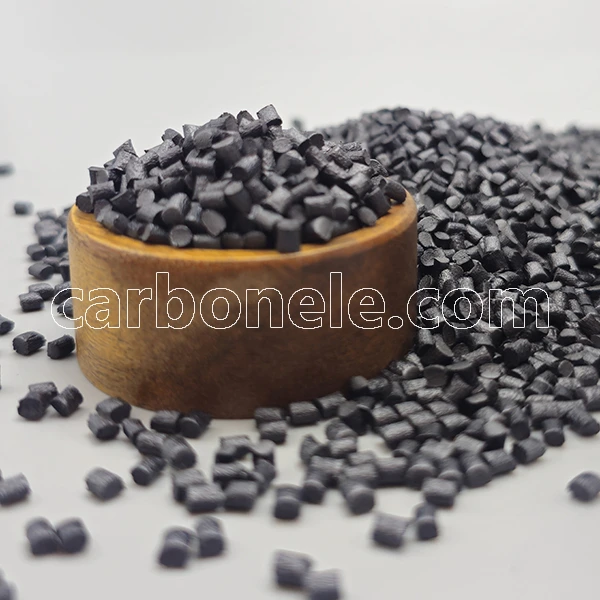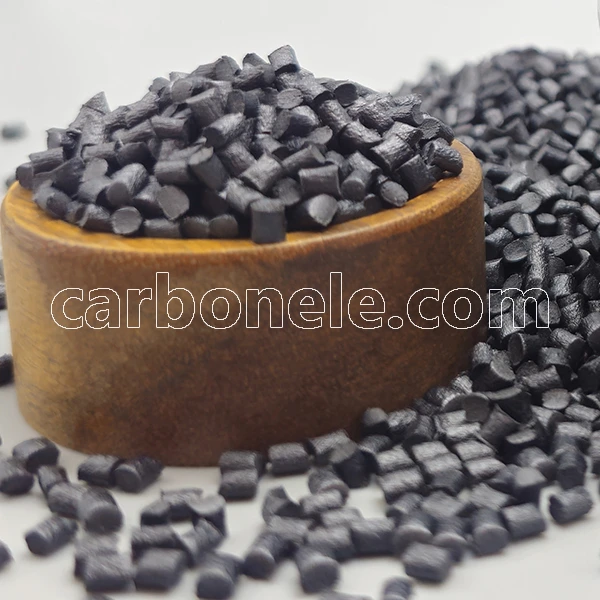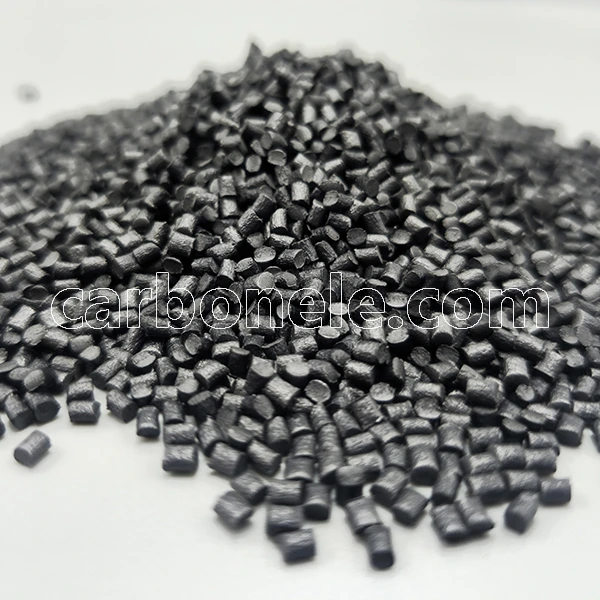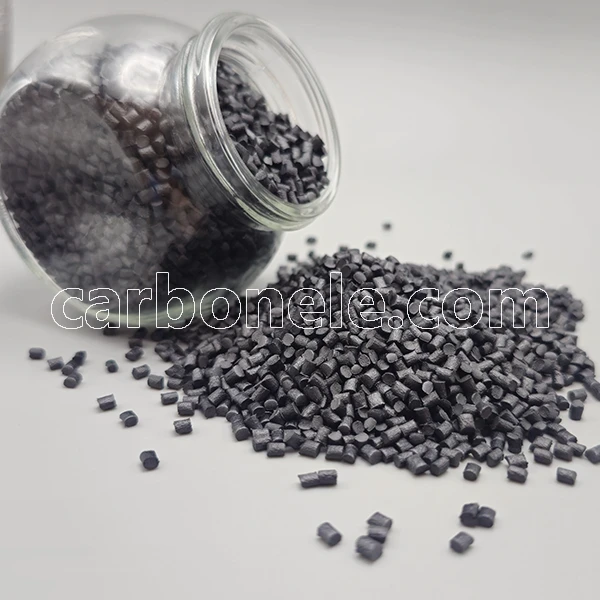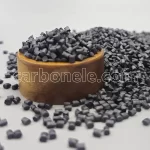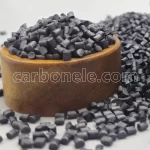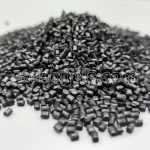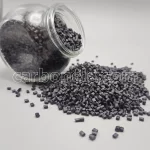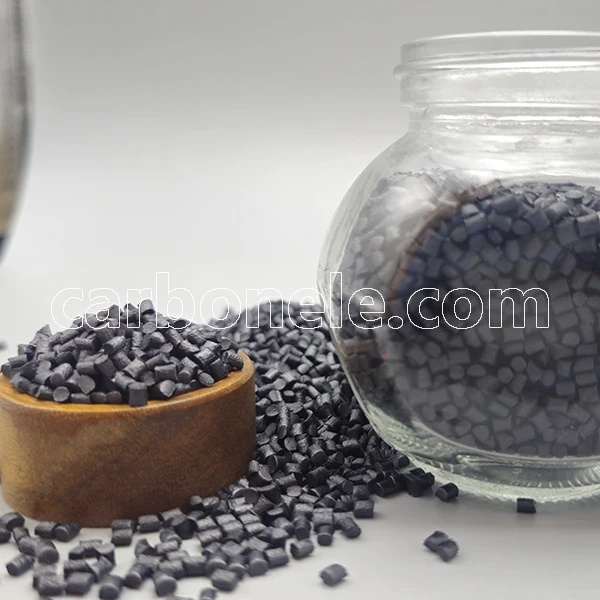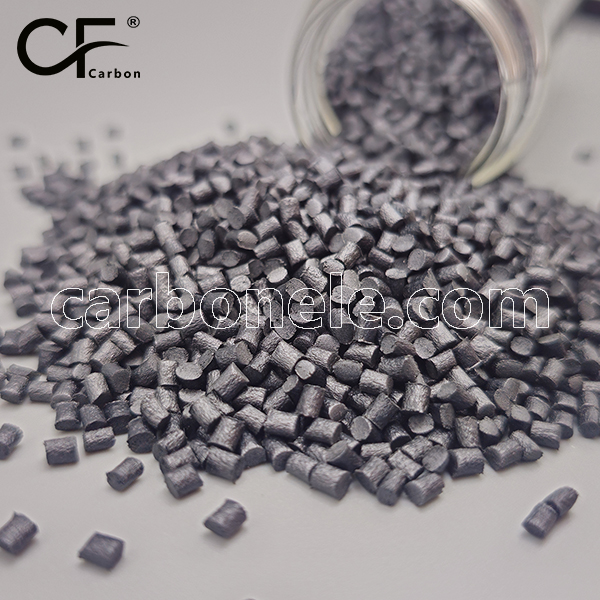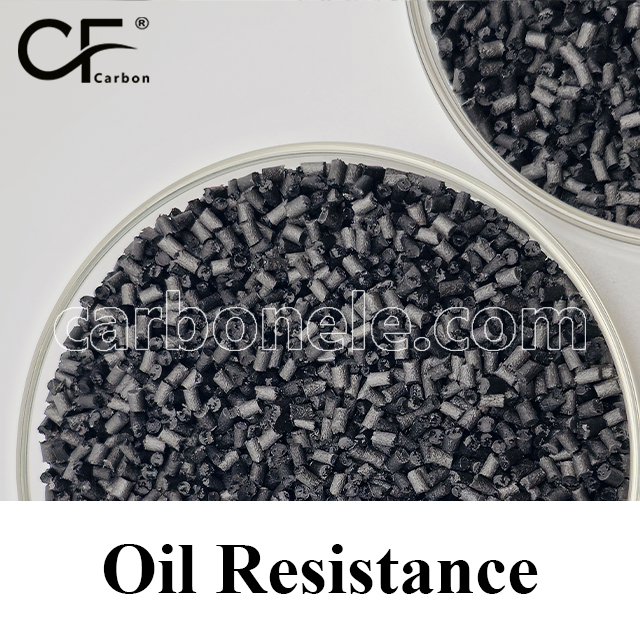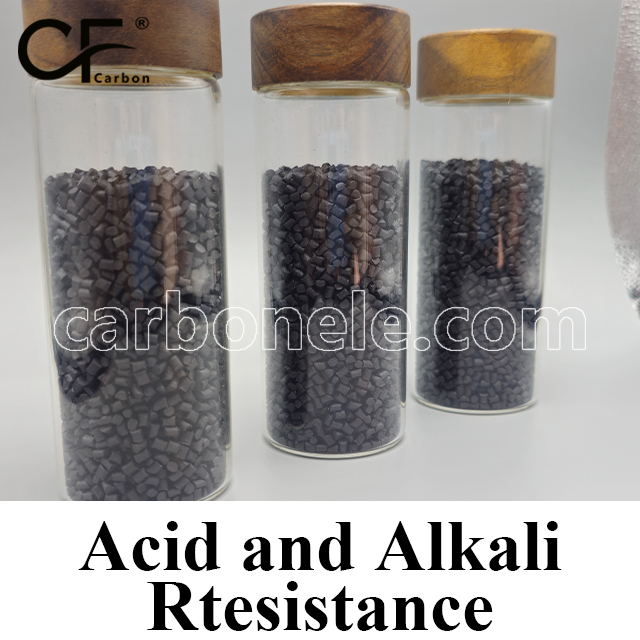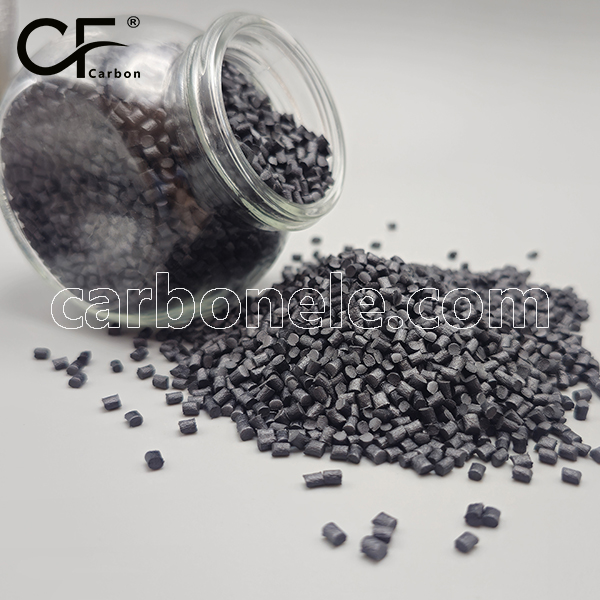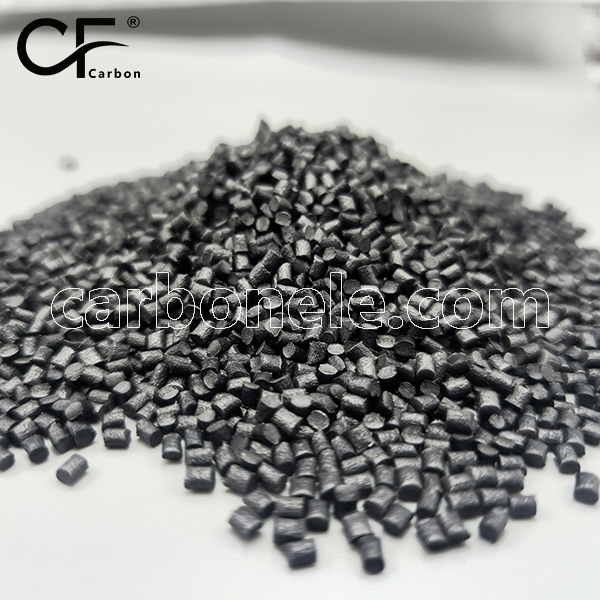
High Temperature Resistance PEEK CF50 50% Carbon Fiber Reinforced Composites
PEEK CF50 has excellent mechanical properties with high strength and stiffness, good high temperature resistance up to 260°C long-term and 300°C short-term, strong chemical stability, low thermal expansion coefficient and good processing performance.
- Manufacturer: Carbon New Material
- OEM/ODM: Acceptable
- Color: Black
- Free samples: ≤10kg
- MOQ: 100kg
- Port: Xiamen
- Model: PEEK-CF-BCA5
- Reinforcer: Carbon fibers
PEEK CF50 is a carbon fiber reinforced polyetheretherketone (PEEK) composite material.
1. Composition of PEEK CF50
– Matrix material: Polyetheretherketone (PEEK) is a semi-crystalline thermoplastic special engineering plastic with excellent comprehensive properties such as high temperature resistance, self-lubrication, corrosion resistance, flame retardancy, hydrolysis resistance, wear resistance and fatigue resistance.
– Reinforcing material: It contains 50% mass content of carbon fiber. Carbon fiber is a new type of fiber material with high strength and high modulus, and has the advantages of light weight, high strength and corrosion resistance.
2. Performance characteristics of PEEK CF50:
– Excellent mechanical properties:
– PEEK CF50 has very high strength. For example, the tensile strength can reach 713 MPa and the compressive strength is 645 MPa, which is much higher than that of pure PEEK material and can bear a large load.
– PEEK CF50 has high stiffness. The elastic modulus (tensile test) can reach 59000 MPa and the bending modulus is 55000 MPa. This makes PEEK CF50 have small deformation under stress and good dimensional stability, and can be used for parts with high dimensional accuracy requirements.
– Good high temperature resistance: The long-term service temperature can be as high as 260 °C, and the short-term service temperature can even reach 300 °C. PEEK CF50 can still maintain good mechanical properties and dimensional stability in high temperature environments, and is suitable for high temperature working environments.
– Strong chemical stability: Inherits the excellent chemical resistance of PEEK itself and has good tolerance to most chemicals such as acids, alkalis, organic solvents, etc., and can still work stably in some chemically corrosive environments.
– Low coefficient of thermal expansion: When the temperature changes, the dimensional change is small, which can better cooperate with other materials and reduce stress concentration and deformation caused by thermal expansion differences.
– Good processing performance: Although carbon fiber is added, PEEK CF50 still has certain processing performance. It can be processed and formed by various methods such as injection molding, extrusion, and compression molding to meet the manufacturing needs of parts with different shapes and structures.
3. Application fields:
| Field | Application Examples | Performance Advantages | Satisfied Requirements |
|---|---|---|---|
| Aerospace field | Aircraft structural parts, engine parts, wing parts (such as the fairing of Boeing 757-200 series aircraft). | Light weight, high strength, high temperature resistance, good mechanical properties and dimensional stability. | Meet the strict requirements of aerospace materials. |
| Automotive industry | Engine parts, transmission system parts, braking system parts (such as pistons, gears, brake pads, etc.). | Improve the performance and service life of automotive parts, reduce the weight of the car and fuel consumption. | Improve automotive performance and reduce energy consumption. |
| Mechanical engineering field | Bearings, gears, seals, couplings, etc. | Good wear resistance, corrosion resistance and fatigue resistance. | Improve the operating efficiency and reliability of machinery. |
| Medical field | Artificial joints, dental implants, spinal repair devices, etc. | Good biocompatibility, good X-ray penetration and no artifacts. | Meet the needs of the medical field. |
| Electronic and electrical field | Enclosures, radiators, insulation parts, etc. | Good electrical insulation, high temperature resistance and dimensional stability. | Ensure the safe operation of electronic and electrical products. |
CFRTPs produced by different manufacturers have their own emphases on performance. At the same time, the performance of CFRTPs will vary due to factors such as different matrix resins, carbon fiber content and types, and production processes.
If you are interested in this material PEEK CF50 and want to further understand information such as product specifications, performance and price, please contact us directly. Thank you.
To learn about other carbon fiber reinforced thermoplastic composites, please click here.
Get to Contact Us
If you are interested in this material and want to further understand information such as product specifications, performance and price, please contact us directly. Thank you.

Frequently Asked Questions
Carbon (Xiamen) New Material Co., Ltd. aims to provide buyers with "one-stop" worry-free high-quality services. Here you can find all information about carbon fiber engineering plastics. If you still have questions, please send us an email for consultation!
-
How can I contact the manufacturer of a product that interests me?
When you find a product you are interested in, you can contact the manufacturer directly by sending an email and we will get back to you as soon as possible.
-
How do I find the products that interest me?
All you need to do is enter the keyword, product name in the search window and press the Enter key on your keyboard. Your search results page will then be displayed. You can also search within the product category pages on the home page. Each category is divided into subcategories, allowing you to refine your search and find products that interest you.
-
Where will I find a buying guide?
Please contact our after-sales service directly and we will provide you with a comprehensive operating guide.
-
What are CF Reinforced Thermoplastic Composites?
CF Reinforced Thermoplastic Composites are materials where carbon fibers are incorporated into a thermoplastic matrix. They combine the strength and stiffness of carbon fibers with the processability and recyclability of thermoplastics. For instance, they are used in automotive parts like bumper beams.
-
What are the benefits of CF Reinforced Thermoplastic Composites over traditional composites?
The key benefits include faster production cycles, easier recyclability, and better impact resistance. They also offer design flexibility. An example is in the manufacturing of consumer electronics casings where complex shapes can be achieved more easily.
-
How are CF Reinforced Thermoplastic Composites processed?
Common processing methods include injection molding, extrusion, and compression molding. Injection molding is widely used for mass production. For example, in the production of small components for the medical industry.
-
What industries use CF Reinforced Thermoplastic Composites?
They are utilized in aerospace, automotive, medical, and sports equipment industries. In aerospace, they can be found in interior components. In the medical field, they might be used in prosthetics.
-
How does the carbon fiber content affect the properties of the composites?
Higher carbon fiber content generally leads to increased strength and stiffness but may reduce ductility. A moderate content is often balanced for specific applications. For example, a higher content might be preferred in structural parts of a race car.
-
What are the challenges in using CF Reinforced Thermoplastic Composites?
Challenges include higher material costs, complex processing equipment requirements, and ensuring uniform fiber dispersion. Issues with adhesion between the fibers and the matrix can also arise. An example is in achieving consistent quality in large-scale production.







